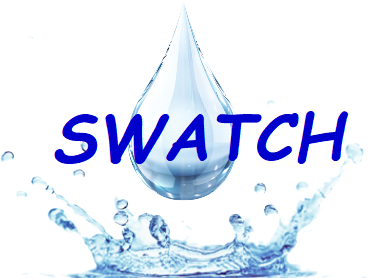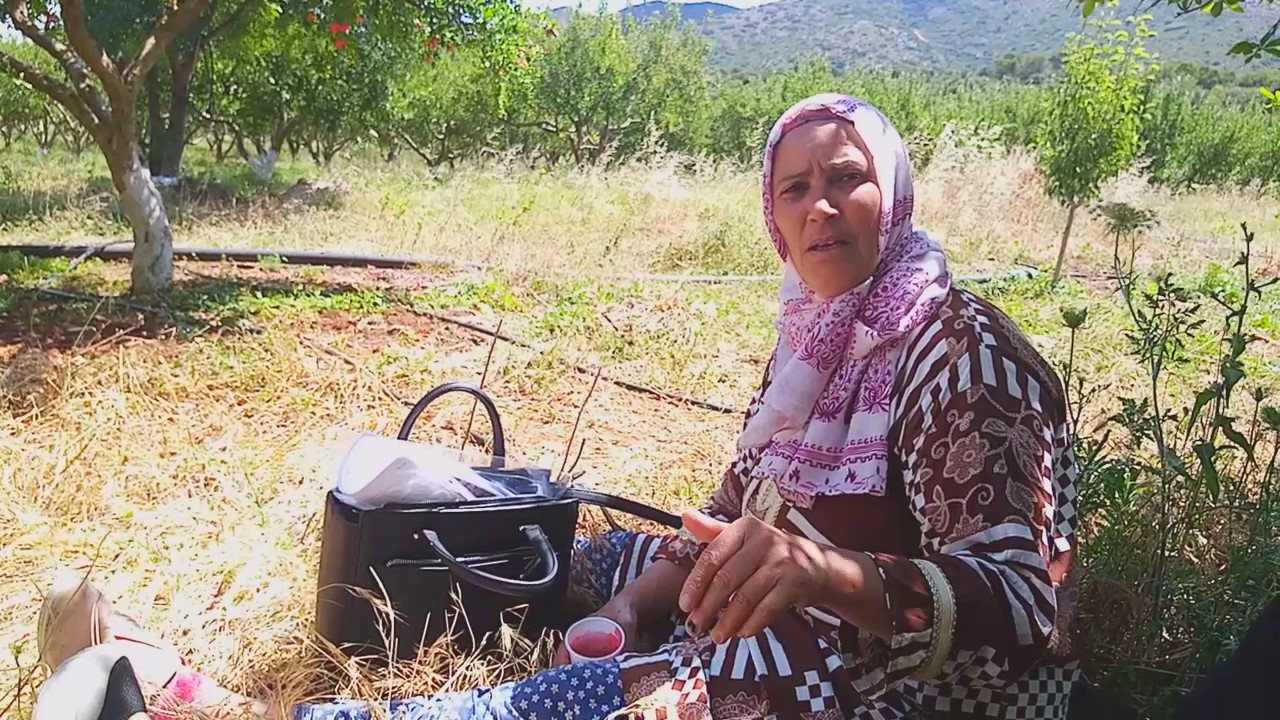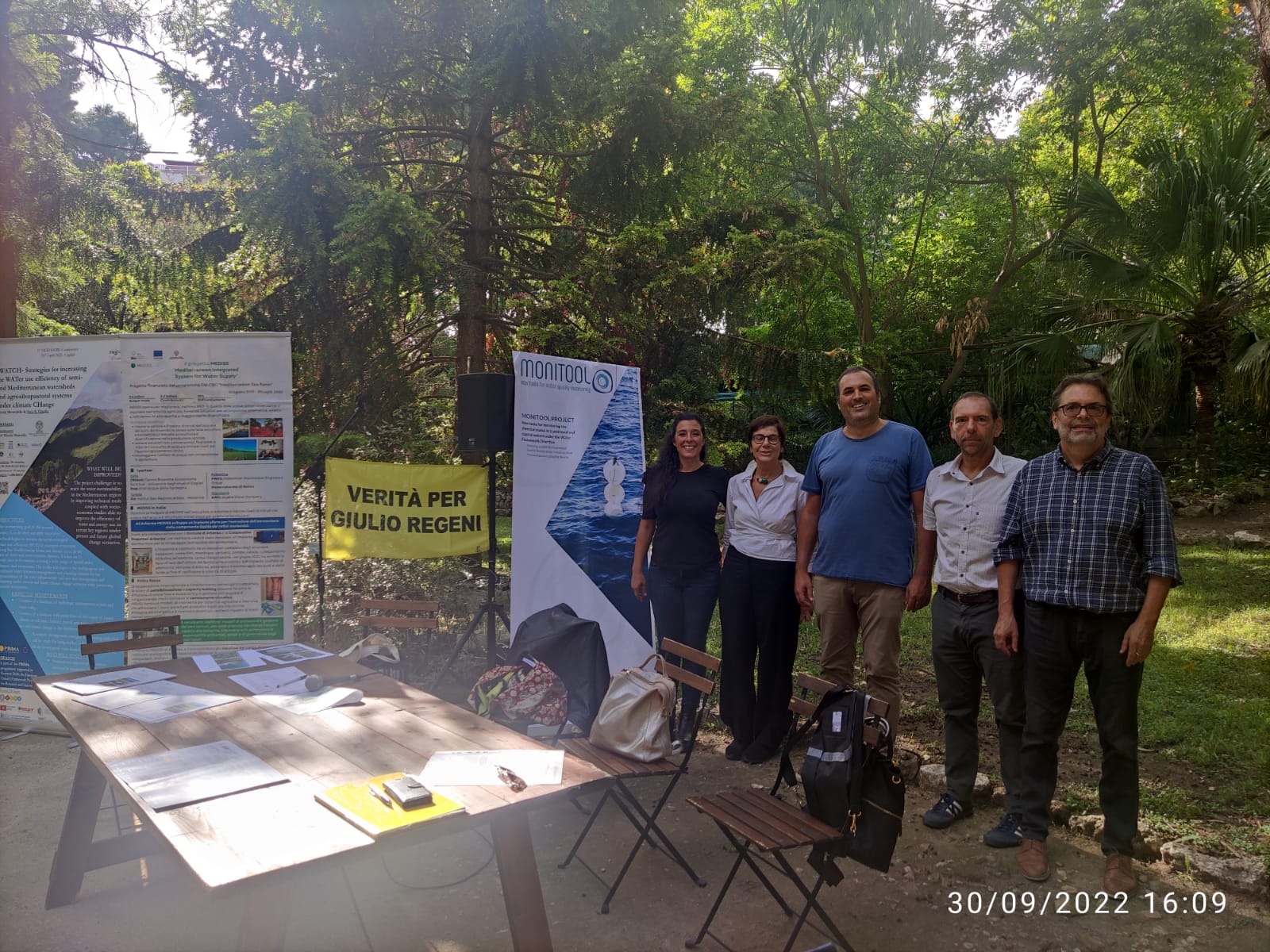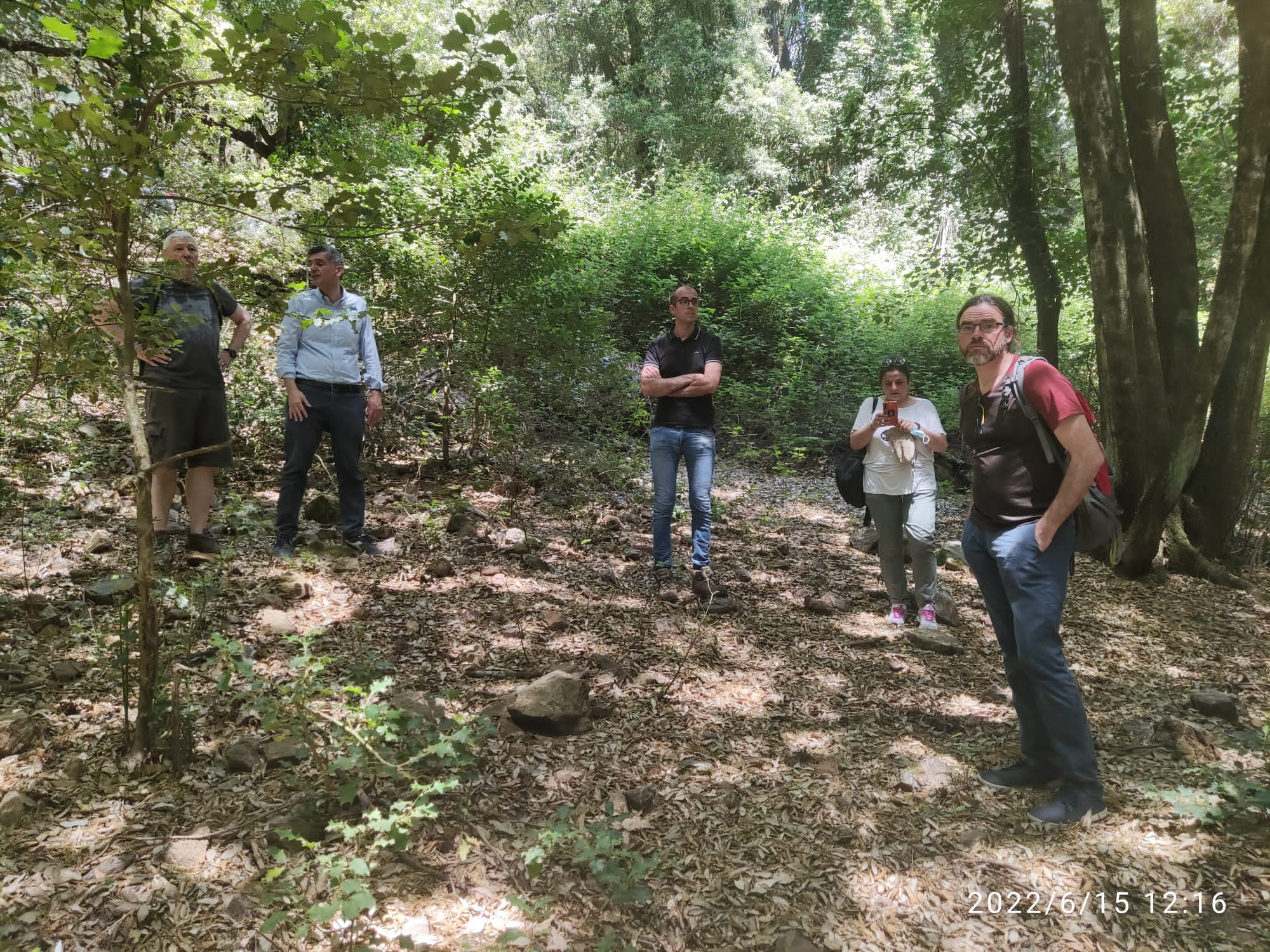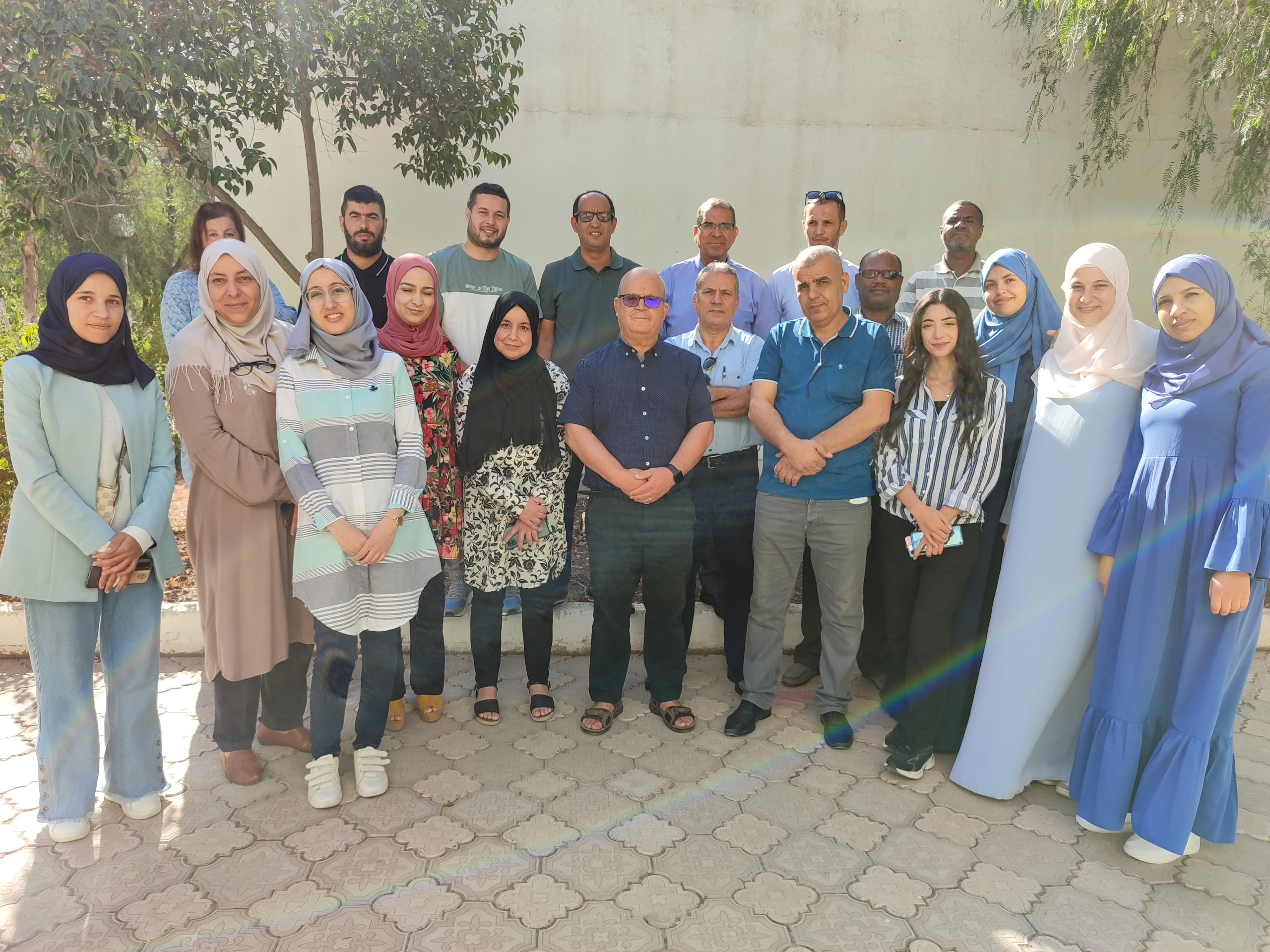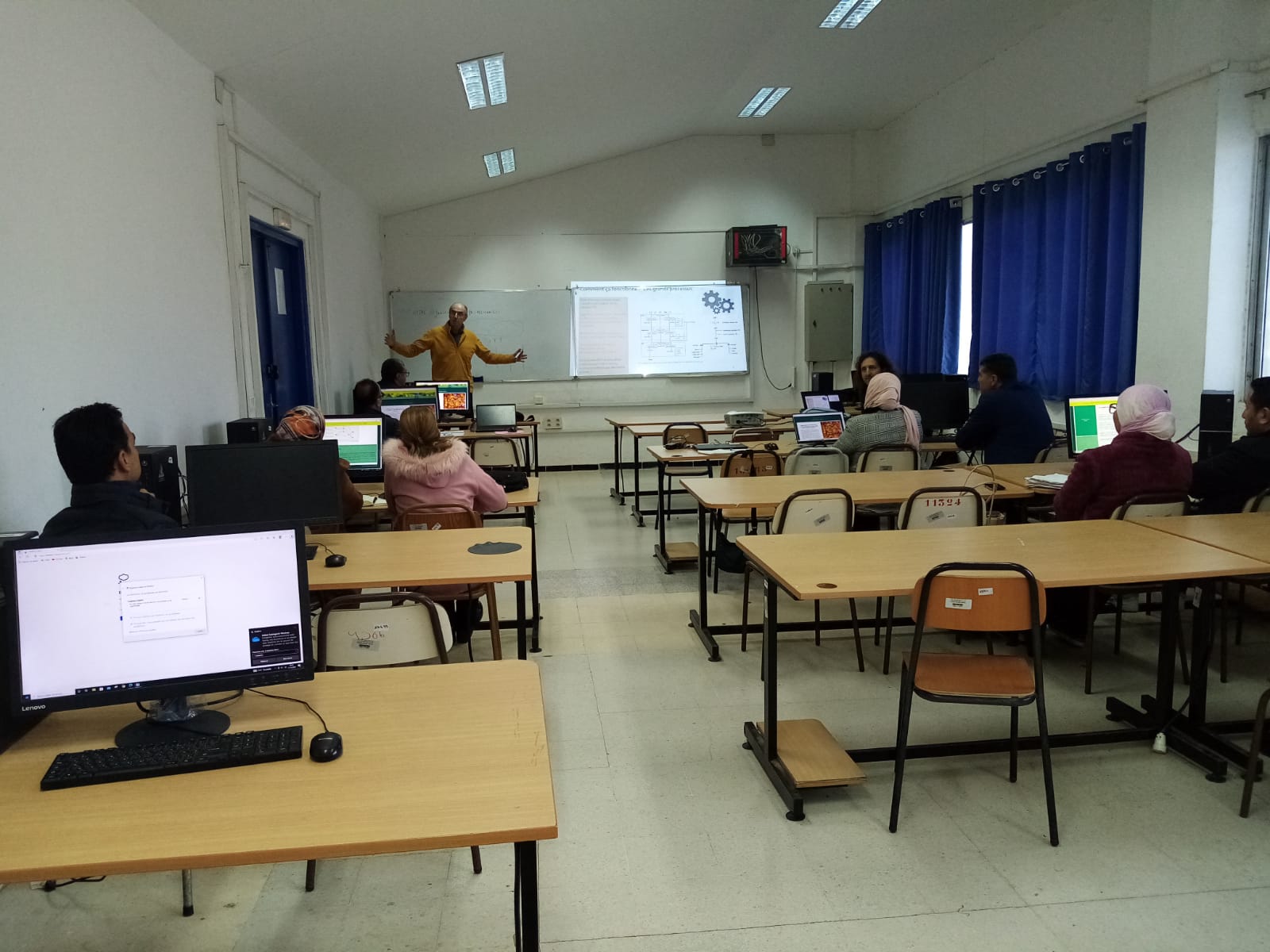Zoubeida Bargaoui, Ines Boussetta and their collaborators from (Ecole Nationale d’Ingénieurs de Tunis – ENIT) interview Hédi, a farmer, in Jalila -Tunisa.
One of the objectives of #SWATCH is to improve the multipurpose and multiuser water resources management and planning systems for the optimization of the water infrastructure and uses, and management and planning under current and future climate change scenarios while preserving natural ecosystems. Irrigation water requirements plays a crucial role.
The Interview is in arabic, here a short summary. -06/09/2021-
The interview focuses on the phytosanitary treatment of the apple tree and the management of drip irrigation. Jalila(the farmer) says that in October after the harvest, they eliminate the mummified fruits and treate with ammonitre and natural fertilizers the plants. In December they use a mixture of natural fertilizers on the ground then make cutting (zbira in Tunisian language). In February there make the treatment of the branches. In April, the buds and flowers are treated mainly against mites (spiders).In May and during the summer, the fruits and leaves are treated too. She do a treatment with iron diluted in water using the drip system and other treatments against spiders ,asphid, leaf and fruit distortion. Then the interview bring us to the management of drip irrigation. The water tour last 5 days. Irrigation from May to September takes place from 6 a.m. to 6 p.m. In case of drought, the irrigation season begins in April or March.For Jalila, the cost of water is between 1000 and 1500 Tunisian dinars (DT) per season depending on consumption. Last year the harvest was only 4 tons but she hopes for a better harvest this year.She does not know the cost of water for this quantity harvested. Her son paid a fraction of water bills and she also recently paid 275 DT.She specifies that each farmer has a volumetric meter. The water management guy working within the water NGO composed by farmers representatives asks by telephone if the farmer is taking his turn for the next day. If so, he comes to open the valve at 6 a.m. and closes it at 6 p.m. The next round will arrive in 5 days. Jalila says she is happy with the service provided by the NGO.
